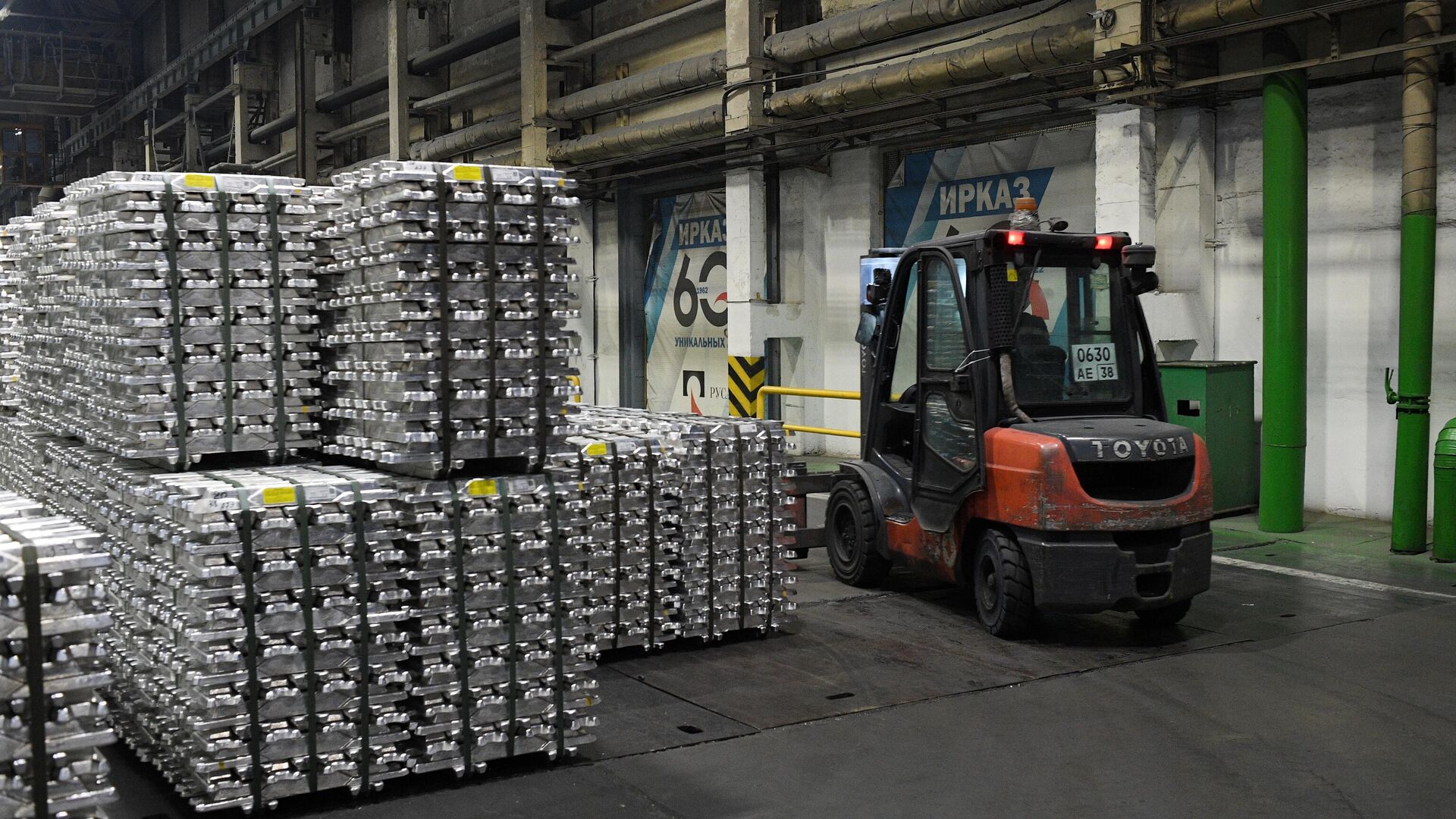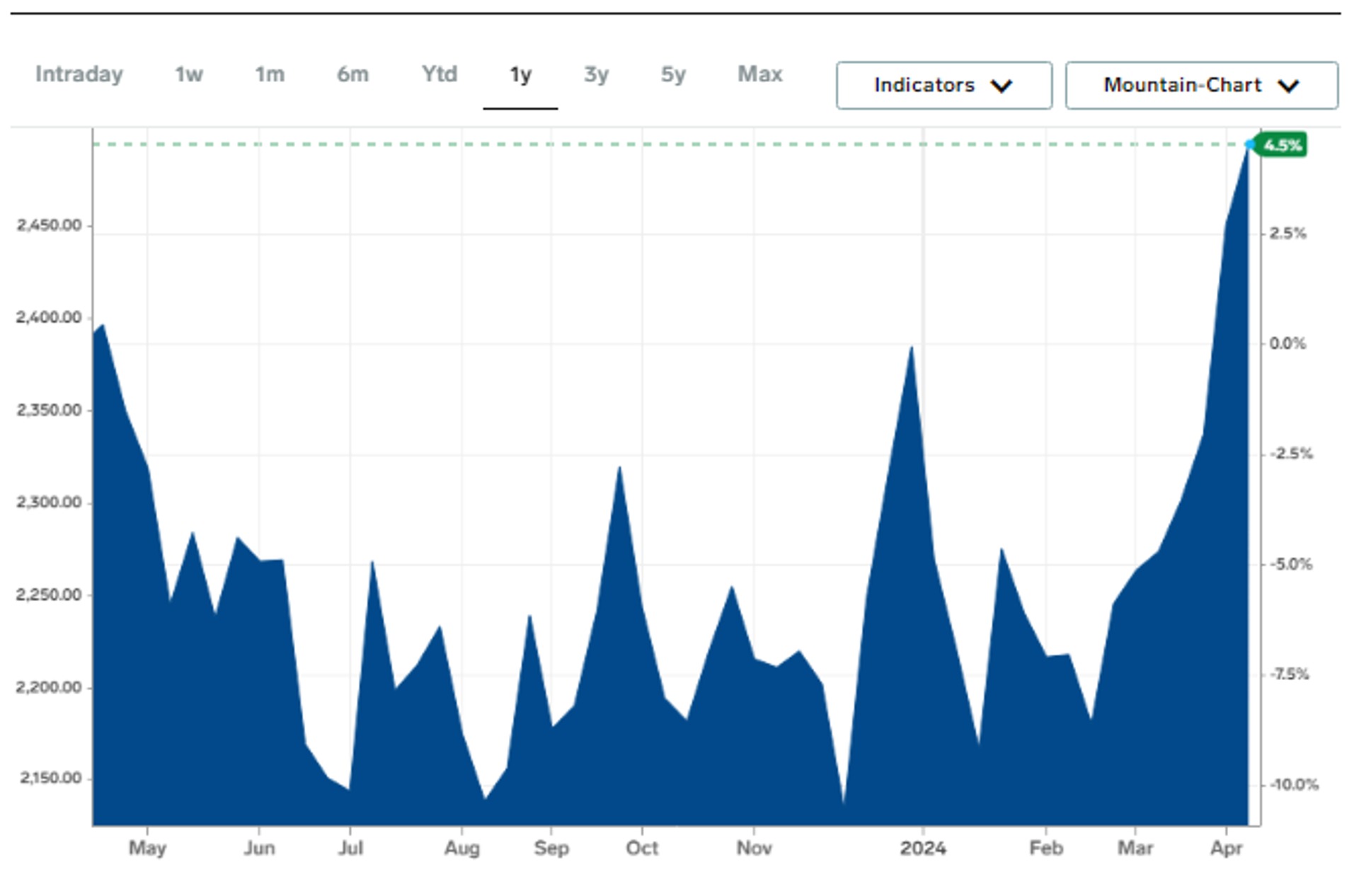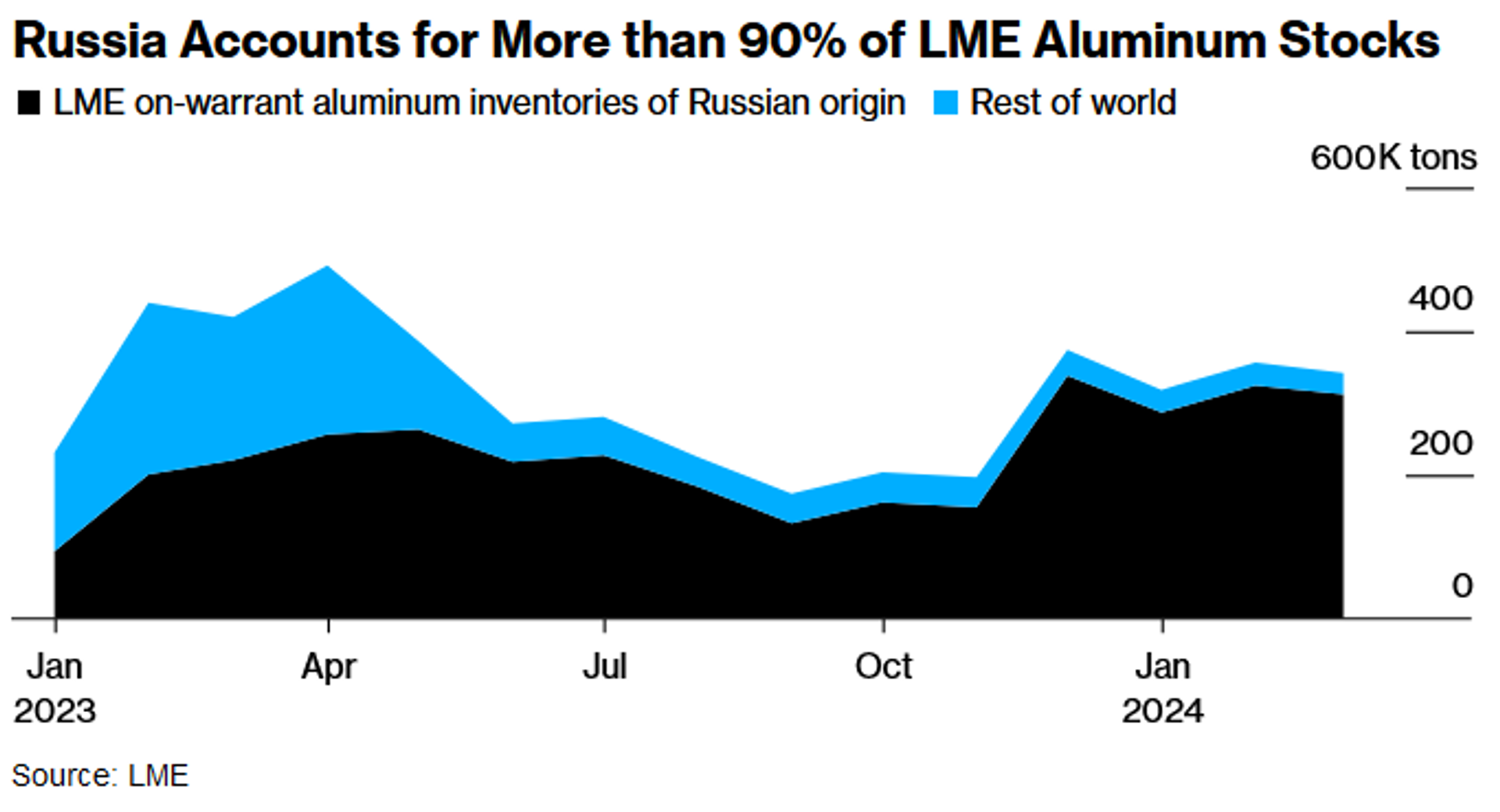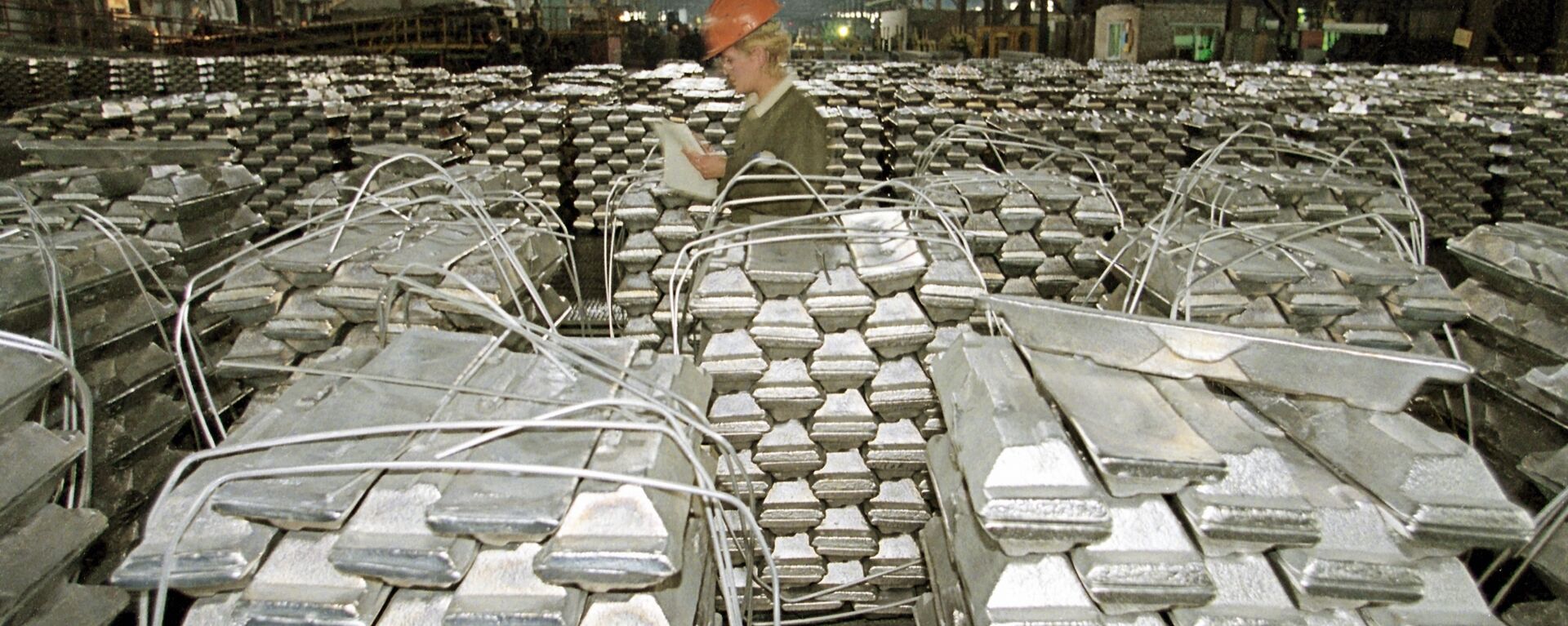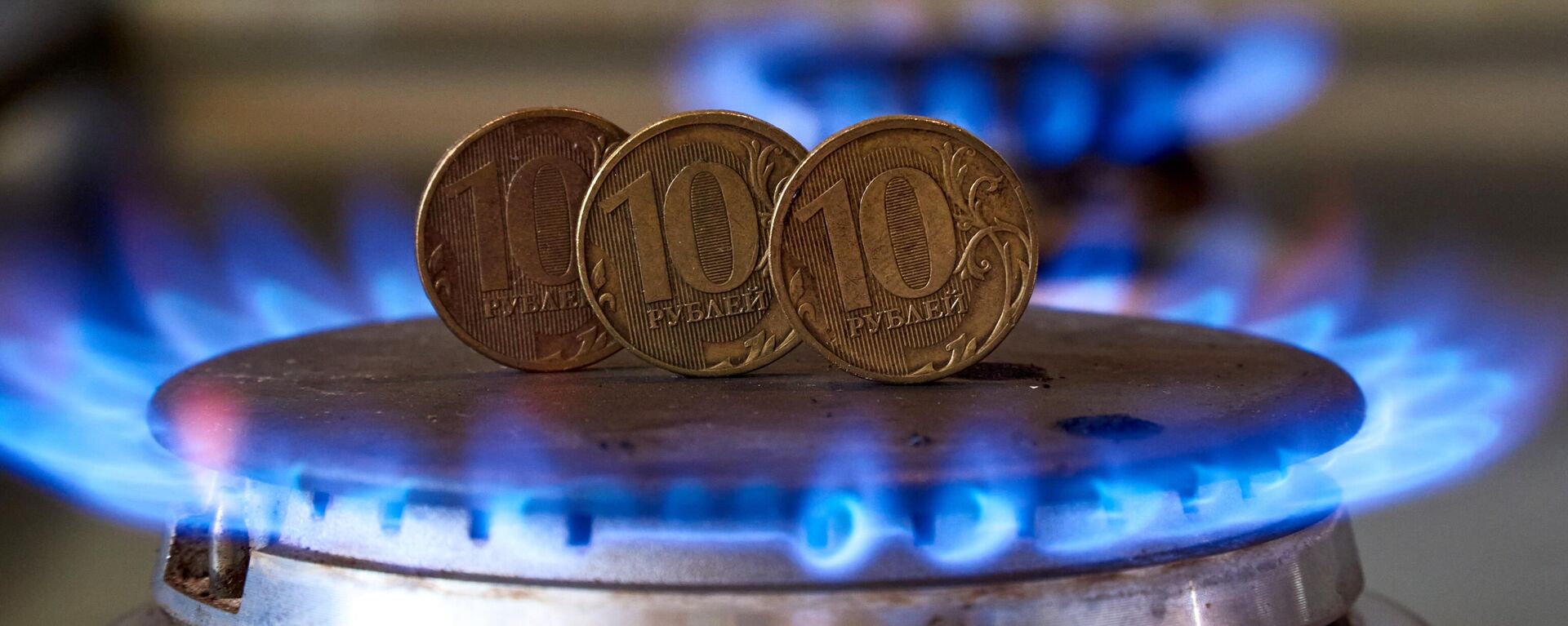https://sputnikglobe.com/20240415/metal-prices-hit-record-highs-amid-new-western-sanctions-on-russia-1117938971.html
Metal Prices Hit Record Highs Amid New Western Sanctions on Russia
Metal Prices Hit Record Highs Amid New Western Sanctions on Russia
Sputnik International
Aluminum prices have hit record highs in response to new sanctions levied upon the Russian-produced metals.
2024-04-15T10:27+0000
2024-04-15T10:27+0000
2024-04-15T10:27+0000
economy
russia
aluminum
china
rusal
cme
nickel
copper
sanctions
russian economy under sanctions
https://cdn1.img.sputnikglobe.com/img/07e8/04/0f/1117938323_0:160:3072:1888_1920x0_80_0_0_a4a9f7c3fde7cdc9bd07f1db63314250.jpg
Prices on aluminum have hit record highs in response to new sanctions levied on Russian-produced metals.Aluminum soared by 9.4%, while nickel rose as much as 8.8% on the London Metal Exchange (LME). Aluminum was trading for $2,616.50 a ton by 1:35 p.m. Shanghai time.The closing price was at $2,494.00 USD/mt. It should be noted that the LME is where global benchmark prices are set.It is nothing new to see Western sanctions backfire, with those wielding them as a tool forced to feel the bite of the restrictions. In this case, three key Russian industrial metals – aluminum, copper, and nickel – were chosen in an attempt to "cripple" Russian sales.The US Treasury Department and UK government banned delivery of Russian supplies of the metals to the LME and the Chicago Mercantile Exchange (CME). Specifically, the ban applies to Russian aluminum, copper, and nickel produced from April 13. Older Russian metal is still permitted."Aluminum from these brands produced prior to April 13, 2024, will continue to be eligible for warranting and delivery against the exchange’s aluminum futures contract," the CME said.The surge in price reflected “worries that the sanctions will reduce Russian flows to Western markets,” Jia Zheng, head of trading and research at Shanghai Dongwu Jiuying Investment Management Co, was cited by Bloomberg as saying.While the US and its allies did not hesitate to impose round upon round of sanctions on Russia over the Ukraine conflict, aluminum has not been targeted before, and Russian base metals continued to be traded and stored by the LME. Since the restrictions only directly affect deliveries to the exchange, they cannot impact the much larger quantity of metal that is acquired, sold, and shipped outside the LME warehouse system. Citigroup analysts were cited as hoping that this fact will “moderate the scale of the price impact.”The analysts also acknowledged that Russian metal heavyweights like Rusal and MMC Norilsk Nickel PJSC are “less entangled in the western financial system than they were before.”While these prohibitions are unlikely to stop Russian sales of the metals in question, they can be sure to infuse further uncertainty into commodities markets. Western economic aggression against Moscow over Ukraine has already roiled markets and upset supply chains, driving prices up, as was acutely felt in the wake of sanctions on the Russian energy sector.Most observers cited by the publication agreed that the new restrictions would result in a redirection of Russian metal flows to other markets, specifically to China. A quarter of Rusal's revenues in 2023 came from trade with the People's Republic of China. Last year, the Biden administration slapped a 200 percent duty on new Russian-made aluminum and scrap. Following the move, Canada banned the import of aluminum products from Russia. The UK also announced it was prohibiting the import of Russian copper, aluminum, and nickel, as well as Russian diamonds.However, as some countries blindly follow the US-led sanctions policy to their own detriment, Russia has been reorienting its market and boosting relations with friendly countries. Thus, sales of refined aluminum to China soared almost threefold in April 2023 from the previous year to 88,859 tons, according to Chinese customs data. Furthermore, Chinese buyers are offered a chance to pay in their own currency, advancing Beijing’s efforts to globalize the yuan amid an increasing trend towards de-dollarization.
https://sputnikglobe.com/20230613/lme-growing-more-reliant-on-russian-aluminum-as-sources-from-other-players-dwindle-1111100743.html
https://sputnikglobe.com/20240401/sanctions-empower-russia-boomerang-on-europe-and-undermine-dollar-hegemony--experts-1117684289.html
russia
china
Sputnik International
feedback@sputniknews.com
+74956456601
MIA „Rossiya Segodnya“
2024
News
en_EN
Sputnik International
feedback@sputniknews.com
+74956456601
MIA „Rossiya Segodnya“
Sputnik International
feedback@sputniknews.com
+74956456601
MIA „Rossiya Segodnya“
aluminum trade, tariffs, anti-russia sanctions, self-harming anti-russia sanctions, sanctions on russian metals, sanctions on russian aluminum, nickel, copper
aluminum trade, tariffs, anti-russia sanctions, self-harming anti-russia sanctions, sanctions on russian metals, sanctions on russian aluminum, nickel, copper
Metal Prices Hit Record Highs Amid New Western Sanctions on Russia
After the US and UK imposed new restrictions on Russian aluminum, copper, and nickel on April 12, prohibiting metal-trading exchanges from accepting supplies from the country, it was an easy guess that the sanctions-happy West was yet again shooting itself in the foot and that the move would reverberate across global metal markets.
Prices on aluminum have hit record highs in response to new sanctions levied on Russian-produced metals.
Aluminum soared by 9.4%, while nickel rose as much as 8.8% on the London Metal Exchange (LME). Aluminum was trading for $2,616.50 a ton by 1:35 p.m. Shanghai time.
The
closing price was at $2,494.00 USD/mt. It should be noted that the LME is where global benchmark prices are set.
It is nothing new to see
Western sanctions backfire, with those wielding them as a tool forced to feel the bite of the restrictions. In this case, three key Russian industrial metals –
aluminum,
copper, and
nickel – were chosen in an attempt to "cripple" Russian sales.
The US Treasury Department and UK government banned delivery of Russian supplies of the metals to the LME and the Chicago Mercantile Exchange (CME). Specifically, the ban applies to Russian aluminum, copper, and nickel produced from April 13. Older Russian metal is still permitted.
"Aluminum from these brands produced prior to April 13, 2024, will continue to be eligible for warranting and delivery against the exchange’s aluminum futures contract," the CME said.
The surge in price reflected “worries that the sanctions will reduce Russian flows to Western markets,” Jia Zheng, head of trading and research at Shanghai Dongwu Jiuying Investment Management Co, was cited by Bloomberg as saying.
Russia is one of the world’s largest producers of aluminum, a metal that is a key part of the defense industrial base, producing 3.7 million metric tons tons of aluminum in 2022. The country accounts for 6% of global nickel supply, 5% of aluminum, and 4% of copper. Russian aluminum accounted for 91% of LME stockpiles at the end of March.
While the US and its allies did not hesitate to impose round upon round of
sanctions on Russia over the Ukraine conflict, aluminum has not been targeted before, and Russian base metals continued to be traded and stored by the LME.
Since the restrictions only directly affect deliveries to the exchange, they cannot impact the much larger quantity of metal that is acquired, sold, and shipped outside the LME warehouse system. Citigroup analysts were cited as hoping that this fact will “moderate the scale of the price impact.”
The analysts also acknowledged that Russian metal heavyweights like Rusal and MMC Norilsk Nickel PJSC are “less entangled in the western financial system than they were before.”
While these prohibitions are unlikely to stop Russian sales of the metals in question, they can be sure to infuse further uncertainty into commodities markets. Western economic aggression against Moscow over Ukraine has already roiled markets and upset supply chains, driving prices up, as was acutely felt in the wake of sanctions on the
Russian energy sector.
Most observers cited by the publication agreed that the new restrictions would result in a redirection of Russian metal flows to other markets, specifically to China. A quarter of Rusal's revenues in 2023 came from trade with the People's Republic of China.
Last year, the Biden administration slapped a 200 percent duty on new Russian-made aluminum and scrap. Following the move, Canada banned the import of aluminum products from Russia. The UK also announced it was prohibiting the import of Russian copper, aluminum, and nickel, as well as Russian diamonds.
However, as some countries blindly follow the US-led sanctions policy to their own detriment, Russia has been reorienting its market and boosting relations with friendly countries.
Thus, sales of refined aluminum to China soared almost threefold in April 2023 from the previous year to 88,859 tons, according to Chinese customs data. Furthermore, Chinese buyers are offered a chance to pay in their own currency, advancing Beijing’s efforts to
globalize the yuan amid an increasing trend towards
de-dollarization.